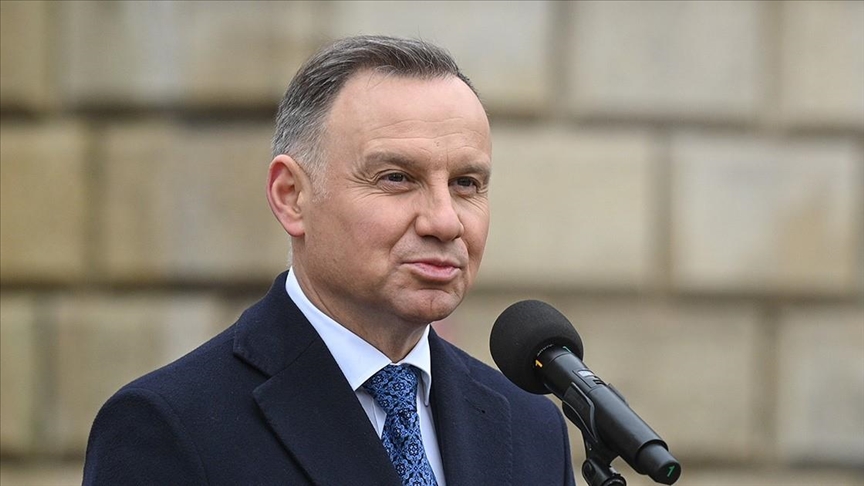WARSAW
Polish President Andrzej Duda on Friday announced changes to a draft law that would see the establishment of a commission to investigate Russia’s influence on the internal security of the Republic of Poland from 2007 to 2022.
He said the amendments would be submitted to the marshal’s office today.
At the beginning of a press conference in Warsaw on Friday, Duda spoke of his “definite support” for the commission and said the decision to sign the bill “was absolutely clear.”
“I am absolutely convinced that it is right. The commission should be up and running as soon as possible. Its operation will prevent the spread of Russian influence,” the president said.
The president then addressed the opposition’s allegations.
“I must admit that appalled by these allegations (made by the opposition), which are clearly marked by bad will, towards me and my colleagues, I decided to take a step that will be a kind of ‘check’ on participants of our political scene – both from the ruling camp and from the opposition,” Duda went on.
“I have prepared an amendment to the act, a series of provisions which additionally regulate or amend those issues that arouse the greatest controversy,” he said.
“It will still be a committee that will be external to parliament because I do not want it to be discontinued after the parliamentary elections when there will be a new parliament. It will continue to operate, that is my assumption, but I want this committee to have no members of parliament and this will be clearly stated in my proposal,” Duda said.
Another change proposed by the president concerns the appeal process against the committee’s decisions – applications would be considered by common courts, not administrative courts.
The bill was passed last Friday by the lower house of parliament, the Sejm.
The ruling Law and Justice (PiS) party accuses former Premier Donald Tusk of making Poland dependent on energy imports from Russia when he was prime minister (2007–2014).
Opposition politicians allege the special commission is an attempt to undermine the candidacy of ex-prime minister and former President of the European Council Donald Tusk, also now leader of the main opposition party, Civic Platform (PO).
The new commission will have more powers than a parliamentary committee of inquiry. It would have the power to ban anyone found to have had Russian connections from holding positions with control over the spending of public funds for up to 10 years.
The opposition said it will boycott the work of the commission, which would start work in June and present its first report on Sept. 17.
Mark Brzezinski, US Ambassador to Poland, said the US “shares concerns about laws that may ostensibly reduce voters’ ability to vote for those they want to vote for, outside of a clearly defined process in an independent court.”
The EU’s justice commissioner, Didier Reynders, said on Tuesday the bill would be “able to deprive citizens, individuals of their rights to be elected in a public function — public office.”

